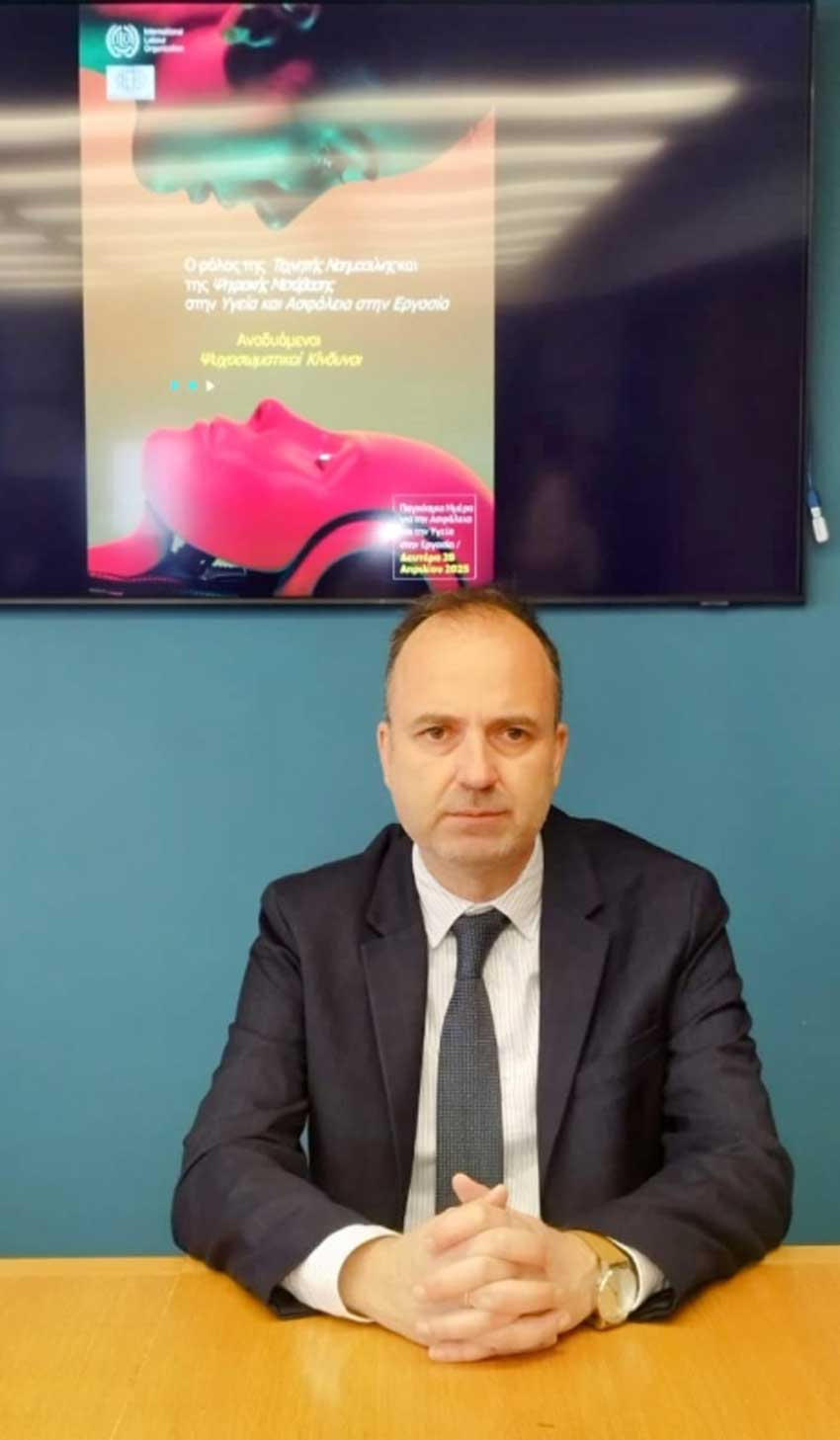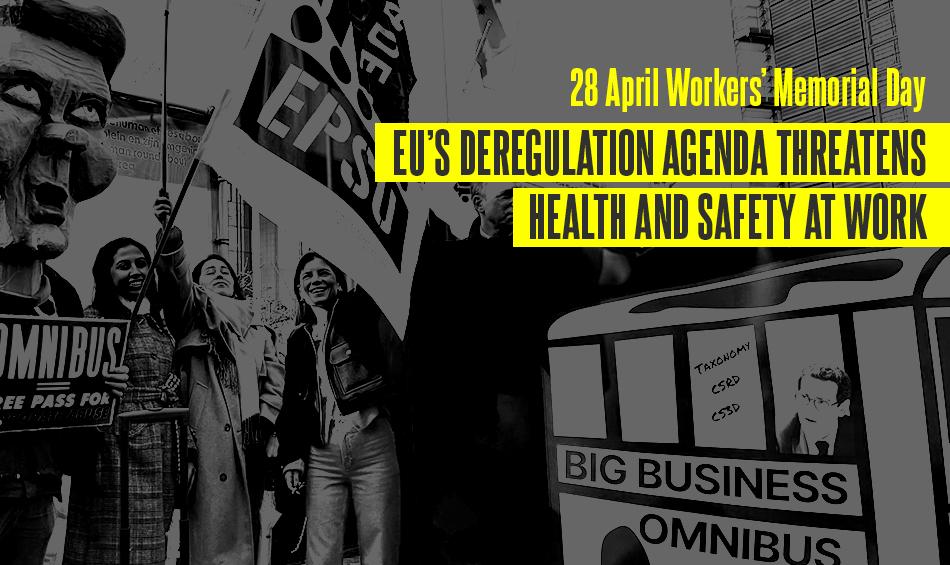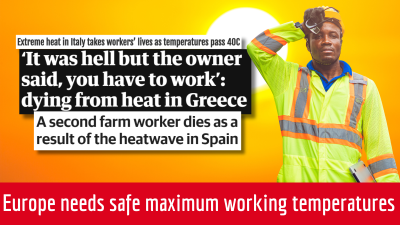Federation of Technical Enterprises Workers’ Associations of Greece, activities for 28 April
The Federation of Technical Enterprises Workers’ Associations of Greece (OSETEE) held a busy program of events to mark 28 April.
 Action program of dr. Andreas Stoimenidis, President of Federation of Technical Enterprises Workers’ Associations of Greece, Vice Chair of EU- OSHA and Political Secretary of GSEE, for Monday, April 28, World Day for Health and Safety at Work and Memorial Day for Workers Who Lost Their Lives.
Action program of dr. Andreas Stoimenidis, President of Federation of Technical Enterprises Workers’ Associations of Greece, Vice Chair of EU- OSHA and Political Secretary of GSEE, for Monday, April 28, World Day for Health and Safety at Work and Memorial Day for Workers Who Lost Their Lives.
This year, the World Day coincides with a new record of losses in our country and is dedicated to the risks emerging from the Digital Transition.
At the same time, Trade Unions around the world have designated April 28 as the Memorial Day for Workers who lost their lives in work accidents or from occupational diseases, to whom they pay tribute and promise of struggle.
- 6.40 a.m. Interview with the journalist Alexandros Klossas on Parapolitika FM
- 8.40 a.m. Interview with the journalist Nikos Panagiotopoulos on Talk Radio
- 9.10 a.m. Interview with the journalists Efi Tzampazi and Vaggelis Stolakis on Thessaloniki Municipal Radio FM 100
- 9.30 a.m. Interview with the journalists Maria Tsakiri and Christos Tsalikidis, on the show NEWSROOM on ERT 3, 102 FM national radio station.
- 10.15 a.m. Laying a wreath at Crying Square, in memory of the workers who lost their lives at work.
- 11.00 a.m. Press Conference by Andreas Stoimenidis at Association of Daily Newspaper Editors of Attica (ΕΣΙΕΑ), Akadimias 20. New data will be provided from OSETEE on human losses in the workplace.
- 13.05 p.m. TV interview with journalist Nikos Kaskaras on the show Pulse of the Region on DION TV
- 13.30 p.m. TV interview with the journalist Kostas Mavridis on the show FOCUS on FLASH TV of West Macedonia. The show will be broadcast at 16.00 pm
- 16.00 p.m. TV interview with the journalist Christina Kousouni, on the INTEX show on Naftemporiki TV.
- 17.00 p.m. Lecture by the President of OSETEE, Andreas Stoimenidis, at the Department of Public Health Policies at the University of West Attica.
- 18.30 p.m. Awareness and Memorial event of the Association of Technical Employees of Greece at the headquarters of OSETEE.
- 19.00 p.m. TV interview with the journalist Nikoleta Sfakianaki, on the show CRETA TODAY on CRETA TV
- 19.30 p.m. Interview with the journalist Nikos Bogiopoulos on REAL FM
- 01.00 a.m. Thuesday 29/04 TV interview with the journalists Nefeli Lygerou and Christos Nedos on the show LATE NEWS on στo ERTNEWS national channel
We all have to be proactive in Occupational Health and Safety issues on a daily basis.
We are at the disposal of our colleagues to support any initiative.
We call on our colleagues in the unions to highlight the Awareness and Remembrance Day.











